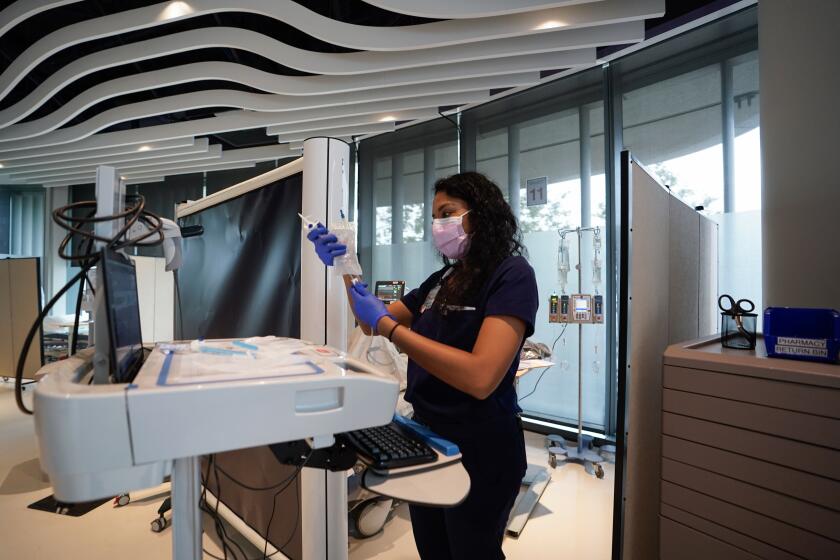T-Mobile-Sprint merger in the spotlight at San Diego public forum
California regulators are reviewing the proposed $26 billion merger of wireless operators T-Mobile and Sprint -- with consumer groups and the Communications Workers of America union raising concerns about potential job losses.
The state Public Utilities Commission scheduled a public forum on Thursday in San Diego to hear from customers of the two companies regarding the proposed merger.
The commission must sign off on the transfer of control of Sprint’s subsidiaries to T-Mobile. Earlier this week, the agency hosted public forums in Fresno and Los Angeles.
The San Diego meeting is slated for 6 p.m. at the County Operations Center hearing room, 5520 Overland Ave.
Possible job losses -- along with the specter of higher prices and harm to low income, minority and rural consumers -- are key concerns of opponents of the deal. The Build Better San Diego Coalition; Interfaith Worker Justice of San Diego County; the San Diego and Imperial Counties Labor Council and other groups said they would attend the San Diego event.
In April, T-Mobile announced it had agreed to acquire Sprint in all-stock deal – combining the third and fourth largest wireless operators in the U.S.
With 127 million customers, the merger firms would be better able to compete against Verizon and AT&T on the cusp of the big investments required to roll out new 5G networks, according to the companies.
The mega-deal is facing scrutiny from both federal and state regulators. T-Mobile is majority-owned by Deutsche Telekom, while Japan’s SoftBank Group Corp controls Sprint.
An analysis by the Communications Workers of America estimates the merger would result in the closure of 902 retail stores in California and eliminate 3,342 jobs statewide.
Nationwide, the CWA projects the merger would result in the loss of 30,000 jobs.
Citing economists, the union contends the deal would boost consumer prices up to 15 percent for month-to-month subscribers and 9 percent for multi-year contract subscribers.
The union is urging regulators to reject the deal unless T-Mobile commits that no workers will lose their jobs as a result of the merger, that overseas call center jobs will be returned to the U.S. and that worker rights to unionize will be honored.
A T-Mobile spokesman decline to comment but pointed to previous statements and regulatory filings where T-Mobile says the merger will produce 3,625 more full-time jobs than Sprint and T-Mobile would have had this year as stand-alone companies.
In five years, T-Mobile forecasts the companies will have 11,000 more workers than they would have had absent the merger.
Some of those jobs would come from the expected $40 billion investment over the next three years to build out a 5G network.
T-Mobile contends it has a track record of creating jobs following mergers. When it bought MetroPCS in 2013, T-Mobile expanded into new markets and more than tripled the number of employees and contractors working on MetroPCS brand.
For those unable to attend Thursday’s meeting, the CPUC will take written comments via email at public.advisor@cpuc.ca.gov, or by mail at CPUC Public Advisor, 505 Van Ness Ave., San Francisco, CA 94102.
Business
mike.freeman@sduniontribune.com;
760-529-4973
Get U-T Business in your inbox on Mondays
Get ready for your week with the week’s top business stories from San Diego and California, in your inbox Monday mornings.
You may occasionally receive promotional content from the San Diego Union-Tribune.










